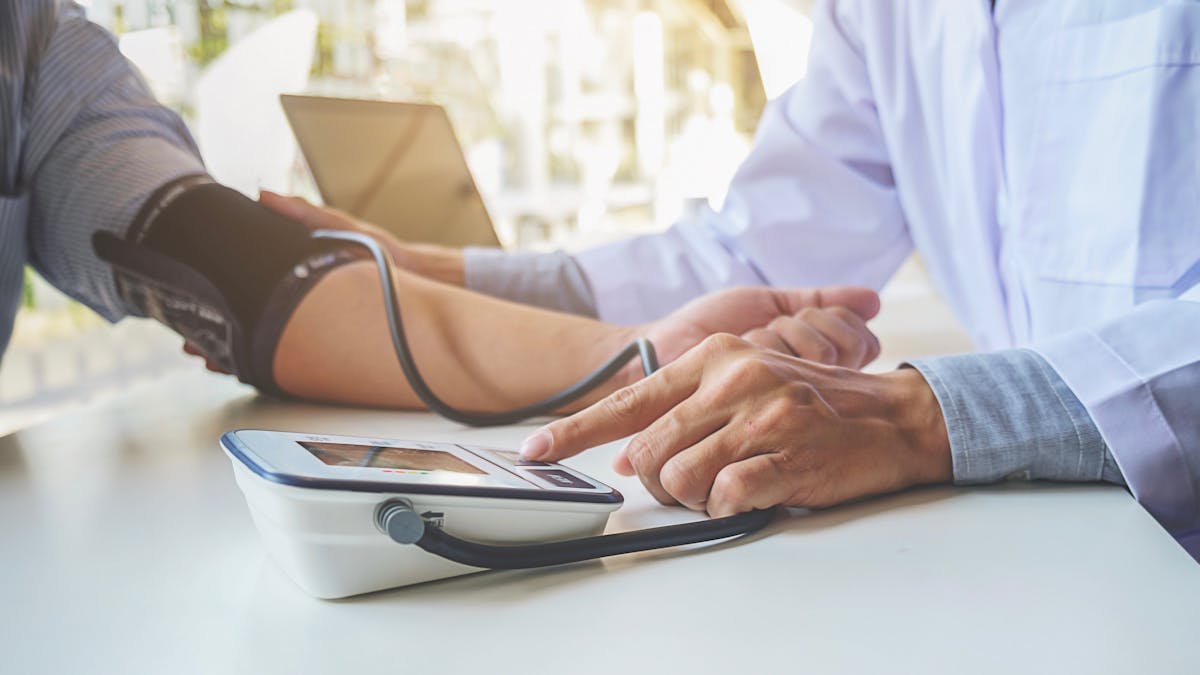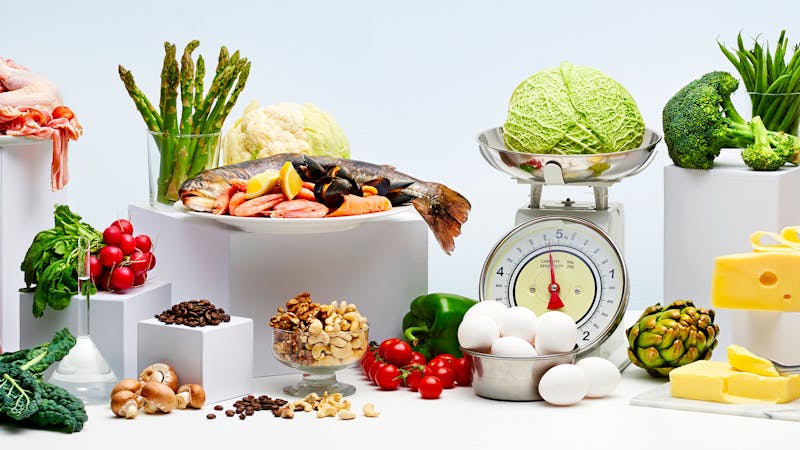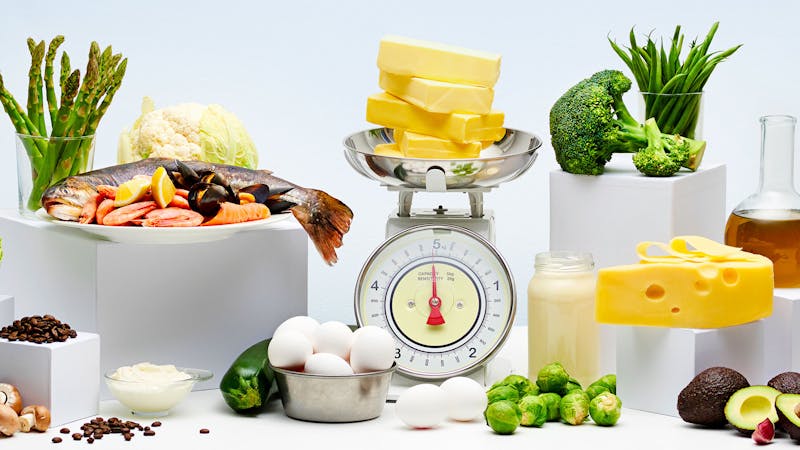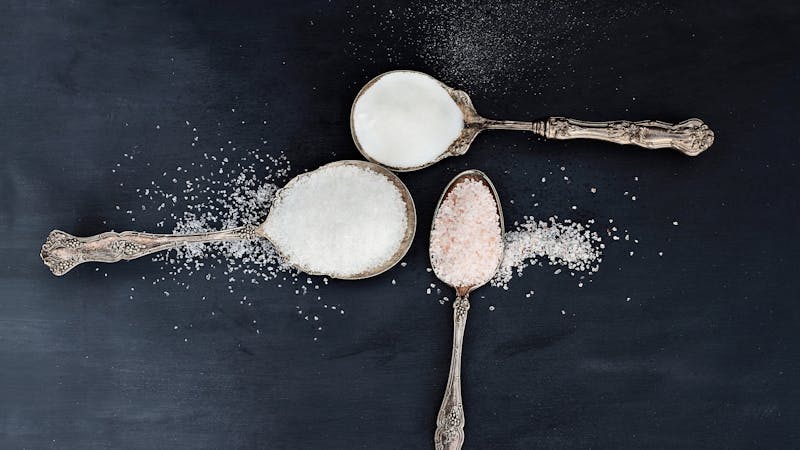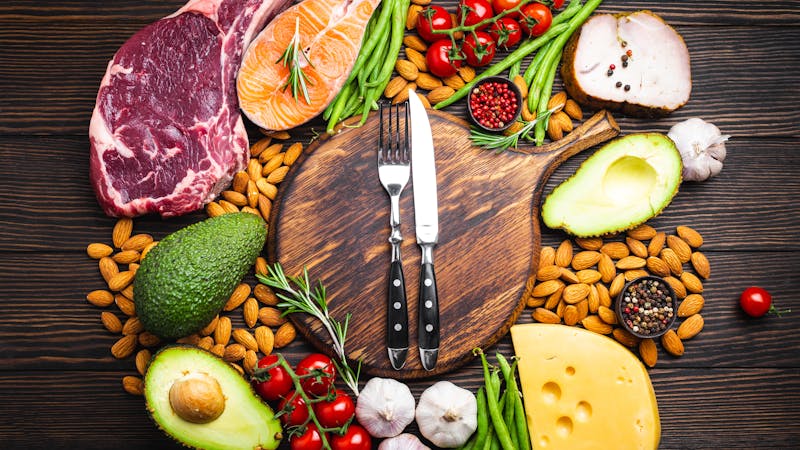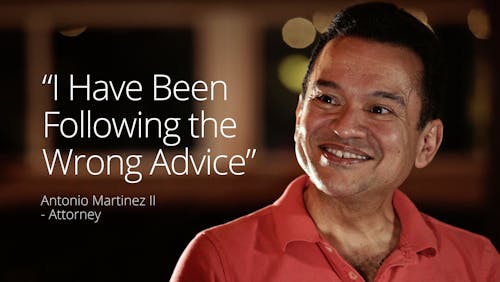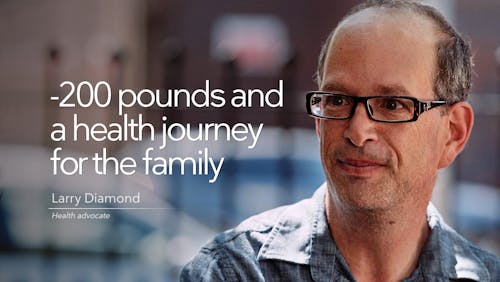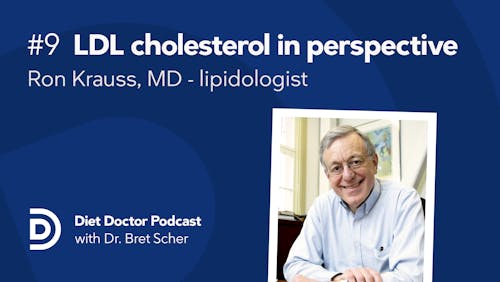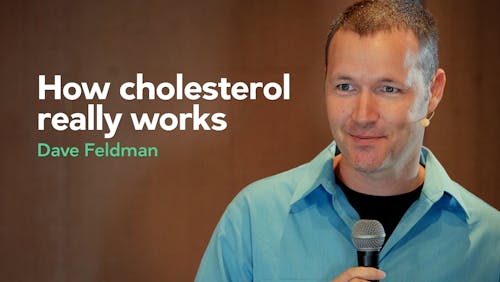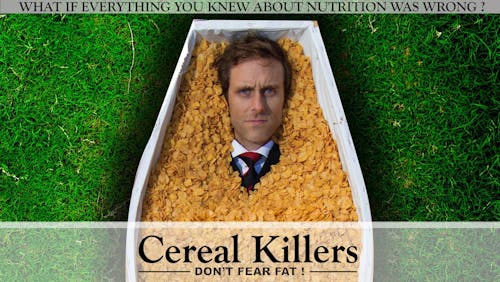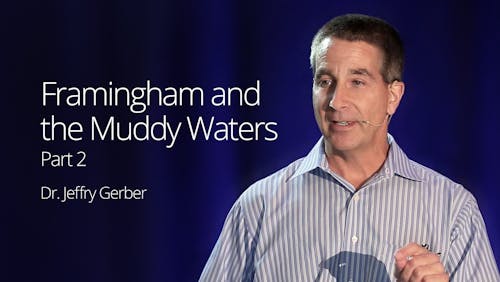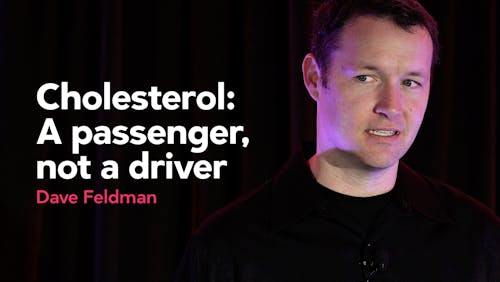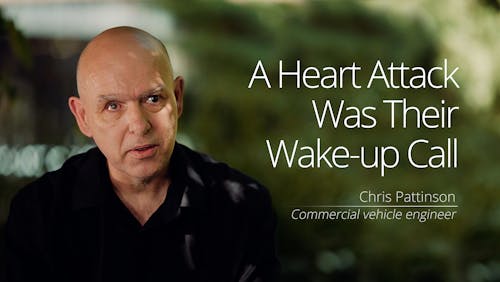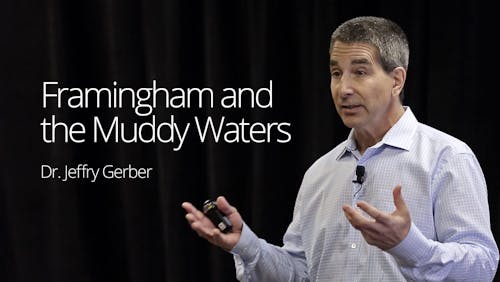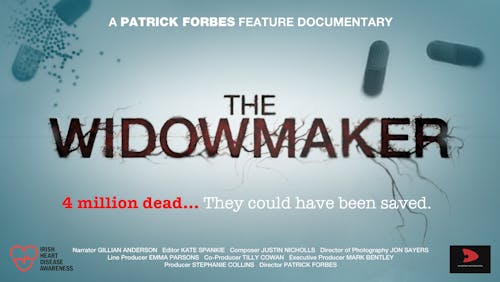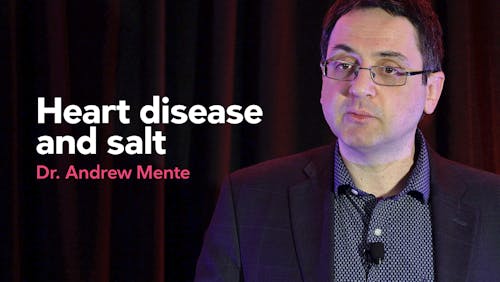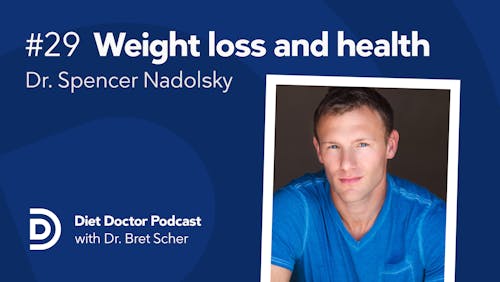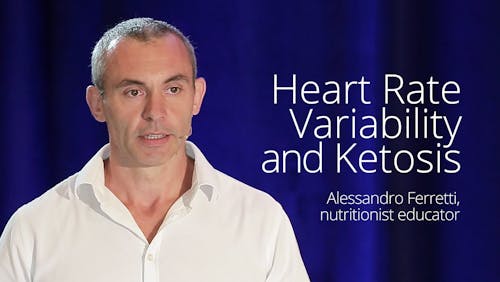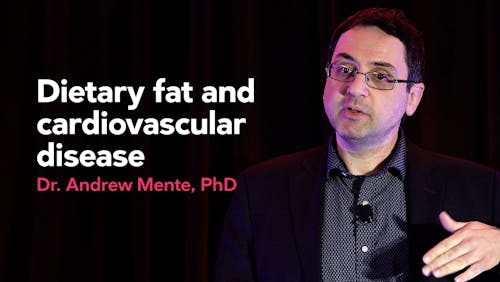High blood pressure: what you need to know
Do you have high blood pressure? If you do, you are not alone. An estimated 1.4 billion people in the world have blood pressure that is too high.1 In North America and Europe it affects one in every three people. Just like obesity and diabetes, rates of high blood pressure have been climbing in all regions of the world over the last four decades.
Having high blood pressure, called hypertension by doctors, puts you at much higher risk of heart attacks and strokes, as well as other serious health issues like congestive heart failure, kidney disease, eye damage, and dementia.
In the US, high blood pressure is now the primary or contributing cause to an estimated 1,100 deaths every single day. World-wide, hypertension contributes to an estimated 10 million premature deaths each year, mostly through heart attacks and strokes.2
But here is the good news: you can reduce high blood pressure with simple lifestyle changes. If those changes are not enough, high blood pressure medications may help.
This in-depth guide tells you what you need to know about high blood pressure.
It is part of a series of Diet Doctor guides all about blood pressure issues. This guide is for people with a confirmed high blood pressure diagnosis. Check out the companion guides, and especially note the introductory blood pressure guide as it details what blood pressure is and how to measure blood pressure accurately, including issues that can lead to inaccurate measurements.
1. What is high blood pressure?
The name says it all: high blood pressure is blood that is flowing through your arteries at higher than normal pressures.
As your heart beats or contracts, it ejects blood to circulate it through the body. Each beat of the heart causes a strong whoosh of blood, like a pump being squeezed.
The upper number in your blood pressure (the systolic) is the pressure of blood on the artery wall as the heart contracts. The lower number (the diastolic) is the pressure on the artery wall between the beats or when the heart relaxes. (To remember systolic and diastolic think of the first letters as “sky” and “dirt.”)
The two numbers of your blood pressure are written as a fraction, such as 140/92 and read out as “140 over 92.”
Everyone’s blood pressure fluctuates throughout the day, usually rising in the morning until its highest point in late afternoon, then falling over night.3
Blood pressure can also rise with exercise, stress, anxiety, fear, agitation and other strong emotions. Even holding your breath can raise your blood pressure a few points. Your blood pressure will never be exactly the same from one reading to the next. What is most important is the general range of readings and how much they fluctuate.
High blood pressure, however, means consistent readings above the normal range of 120/80.4
2. High blood pressure chart and numbers
As can be seen from this blood pressure chart, high blood pressure is now classified into different stages.
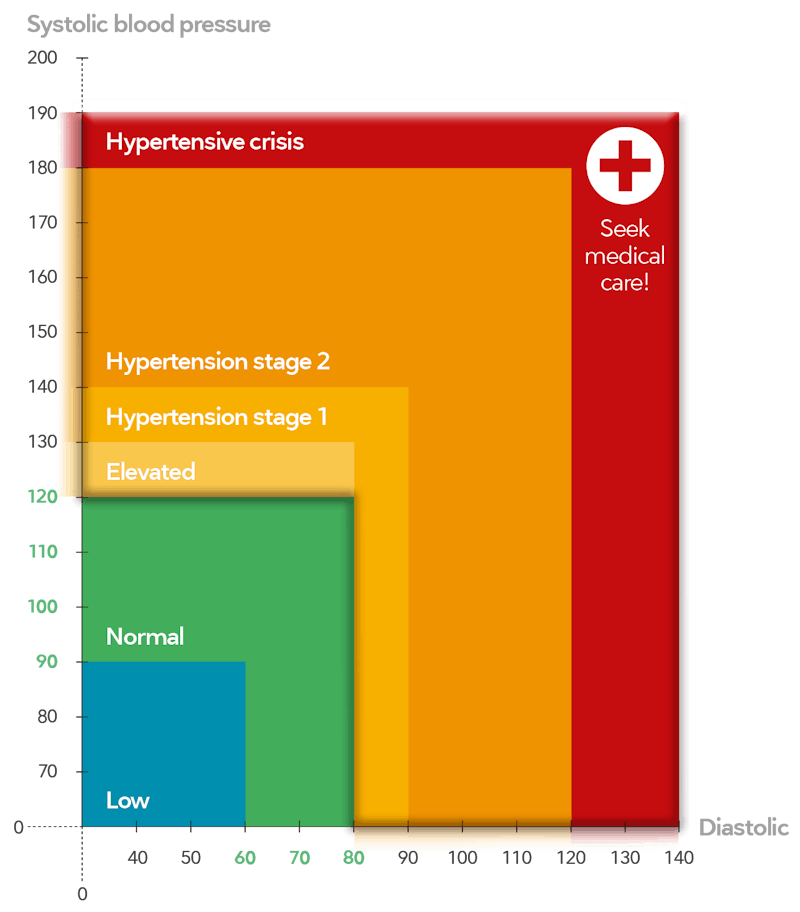
- Elevated (light yellow on graph): This is blood pressure that is slightly higher than normal, sometimes called pre-hypertension. The systolic pressure is between 120 and 129 and the diastolic is below 80.
- Stage 1 (light orange on graph): Blood pressure that is consistently between 130 to 139 systolic or 80 to 89 diastolic is called Stage 1 hypertension or mild hypertension. Lifestyle changes are often very successful in normalizing Stage 1 hypertension. If blood pressure continues to rise over time in spite of lifestyle changes, medication may be recommended by healthcare practitioners.
- Stage 2: Blood pressure that is consistently between 140 to 179 systolic and 90 to 119 diastolic is more severe hypertension and associated with more long-term health concerns. Most guidelines recommend immediate medication for pressures this high if there are other cardiovascular risk factors.5 We suggest, however, that you also ask your doctor about the utility of lifestyle interventions as an initial approach.
- Hypertensive crisis: If a blood pressure reading is ever higher than 180 systolic and/or 120 diastolic this is an emergency. You need to see your doctor or go to your local hospital right away. Pressure this high can be life-threatening and can rapidly damage delicate tissues in your organs, especially in your heart, lungs, brain, kidneys and eyes. Fortunately, a hypertensive crisis is relatively rare and impacts only about 1 to 2% of people with high blood pressure.6However, research suggests that up to 25% of people who are diagnosed each year with hypertensive crisis did not know they had high blood pressure at all.7
3. What are the symptoms of high blood pressure?
High blood pressure is called the silent killer because most people with stage 1 or stage 2 hypertension have no outward symptoms at all. Nada. Not one!
The only way high blood pressure is usually found is by regular blood pressure checks. Your doctor should check your blood pressure at a minimum every year at your annual visit. Accurate public blood pressure monitors are often found in places like pharmacies, gyms and community centers, especially in North America. A home monitor is also an affordable, automatic and accurate way to keep tabs on your blood pressure.
If you check your blood pressure regularly you will know if you are trending towards higher pressures or if your lifestyle changes or medications are lowering your measurements.
Symptoms of hypertensive crisis
While stage 1 and stage 2 hypertension do not have outward symptoms, a hypertensive crisis is more likely to have symptoms (although it can still be asymptomatic).8 This can be any of the following:
- headache
- blurry or distorted vision
- dizziness
- nausea or vomiting
- shortness of breath
- nose bleeds
- chest pain
- irregular heartbeats
Again, a hypertensive crisis with blood pressure above 180/120 is a medical emergency. Seek immediate medical care.
4. What causes high blood pressure?
Scientists don’t know why high blood pressure occurs in some people and not in others. In fact, 95% of high blood pressure cases have no direct, discernible cause. This is called primary, or essential, hypertension. (When there is a clear cause, it is called secondary hypertension — see below.)
With primary hypertension, it is known that a number of risk factors predispose individuals to having high blood pressure. These risk factors include obesity, sedentary lifestyle, high levels of alcohol consumption, smoking, stress, family history and certain ethnicities.
Not everyone with these common risk factors will develop high blood pressure, but these conditions are associated with a higher risk of receiving a diagnosis of hypertension.
African Americans at higher risk
If you have African genetic heritage, especially if you live in the US, your risk of having high blood pressure as you age is much higher than other ethnicities. The reason why is hotly debated. Is it largely a genetic difference, such as in the way salt is handled by the body?9 Or is it more a result of socio-economic factors leading to issues like stress, poor diet, or reduced access to medical care?10 Or could it be a number of linked genetic, societal and environmental causes?11
Scientific research isn’t definitive, but the difference is real. A recent study found that 75% of African-American men and women had high blood pressure by age 55, compared to only 50% of Caucasian men and 40% of Caucasian women.12In the US, African Americans are two times more likely to die of a stroke and five times more likely to develop end-stage kidney disease from high blood pressure.13 That means lifestyle changes and the right medications are especially important for African Americans.
Blood pressure increases with age
Increasing age is also a risk factor for high blood pressure for everyone. As we age, our blood vessels stiffen and become less elastic. This can increase the pressure in the arteries.14
It is debated, however, whether high blood pressure in the elderly, especially those over age 80, needs to have the same aggressive treatment to lower it back into normal ranges.15 That is because the use of high blood pressure medications can have risky side effects, such as dizziness or lightheadedness leading to hip-breaking falls, especially in those who are frail and old. This higher risk of drug side effects may come without much benefit in reducing the number of heart attacks, strokes, or premature deaths. So if you are older, a careful discussion with your doctor is needed.16
One trial, called the SPRINT Trial, did show a small overall mortality benefit in the elderly who were aggressively treated for hypertension, but it came along with increased risk of hypotension, falls, and kidney disease.17
Even though we don’t yet have scientific data to prove it, it makes sense that lifestyle changes in the elderly, such as adopting a low-carb diet, may work to lower blood pressure and cause fewer side effects than medications. More studies are needed to confirm the benefits of dietary changes in this demographic, keeping in mind that elderly people may find it harder to drastically change their diet.
However, promising-but-early research by Dr. David Unwin and colleagues shows that a low-carb diet appears to be effective for lowering blood pressure across a wide range of ages, among patients with hypertension and insulin resistance in primary care practice.18
Secondary causes of hypertension
In some cases — less than 10% — high blood pressure is caused by a distinct, treatable or reversible factor such as an illness, a medication, a rare hormone-secreting tumor, or another substance. This is called secondary hypertension.
If you are diagnosed with high blood pressure, especially if you are under the age of 30, or if your blood pressure increases rapidly with no previous indication that your blood pressure was trending higher, you and your doctor should closely examine whether the sudden rise might be caused by a reversible factor.
The following are the most common causes of secondary hypertension:
- Specific chronic conditions: A number of treatable conditions can cause high blood pressure. These include various renal diseases, sleep apnea, a congenital narrowing of the aorta (aortic coarctation), and various problems with the adrenal glands including hormone-secreting tumors.19 Treating the underlying condition can reduce or normalize blood pressure.
- Medications: a number of prescriptions and over-the-counter drugs have side effects that include increasing blood pressure. These include:
- Oral contraceptives and hormone replacement therapy, especially with higher estrogen doses.20
- Oral decongestants found in some cold and allergy medications.21
- Non-steroidal anti-inflammatories (NSAIDs) for pain relief and inflammation.22
- Stimulant drugs used to treat Attention Deficit Hyperactivity Disorder (ADHD), especially mixed amphetamine salts (Adderall).23
- Herbal supplements including St. John’s Wort, ginseng, ginkgo, blue kohosh.24
- Licorice: A compound in licorice root called glycyrrhizin — which is found in licorice-flavoured herbal teas, candies, lozenges, and herbal remedies — is a very potent blood pressure-raising agent. Its use has prompted a number of case studies and a warning from the US Food and Drug Administration.25 Check if any licorice or licorice extract is in your diet.
- Alcohol: especially if consumed in larger quantities on a daily basis.26
- Recreational drugs: Cocaine, methamphetamines and other stimulant recreational drugs.27
- Tobacco use, particularly smokeless (chewing) tobacco.28
If you receive a sudden diagnosis of high blood pressure, rule out any possible underlying health conditions with your doctor and review with your pharmacist all medications, supplements, and other products you are using that may have contributed to this unexpected rise.




5. Why high blood pressure is dangerous
If high blood pressure has no symptoms and no known cause, why do we care so much about lowering it? Because it silently causes significant damage.
Just as too much water pressure in a garden hose can weaken the walls of the hose and the spray can be too strong when blasted on delicate plants, blood flowing through our arteries under too much pressure can weaken and damage blood vessel walls, or damage the delicate organ structures and tissues that receive the high-pressure flow. The longer blood pressure stays high, the more damage it can cause.
Uncontrolled high blood pressure over time can predispose us to any of the following:
- Stroke: High blood pressure damages the vessels both leading to the brain and in the brain, potentially leading to narrowing or blockages that result in decreased blood flow and eventual damage to the brain itself. High blood pressure can also cause blood clots that block blood flow to the brain.29
- Heart attack: High blood pressure can damage the essential coronary arteries that feed the heart muscle, predisposing the vessels to the formation of plaque. Blood clots, too, more common in those with high blood pressure, can block the arteries, starving the heart muscle of blood flow.30
- Congestive heart failure: The heart that is pumping out blood under higher pressure can tire, weaken, enlarge and become less effective as a pump. This causes heart failure.31
- Kidney damage: High blood pressure scars and damages delicate structures in the kidneys, including blood vessels and blood-filtering tissues, preventing these organs from doing their essential blood-cleaning job and leading to permanent damage and chronic kidney disease.32
- Eye damage: The delicate blood vessels of the retina can be damaged, causing narrowing, ruptured vessels, swelling of the optic nerve, and vision problems or vision loss. Sometimes the first signs of high blood pressure can be seen on an eye exam, before any other damage is noted.33
- Dementia: Long term high blood pressure not only greatly increases the risk of stroke, it increases the risk of subtle damage to brain blood vessels, contributing to eventual cognitive decline.34
6. Next steps
No doubt about it, high blood pressure is a significant cause of disease, illness and death. It truly is important to do what you can to bring it back into normal ranges.
Cut the carbs, control the pressure
Reducing the sugar and carbohydrates in your diet is emerging as a powerful, effective way of lowering your blood pressure.35 In fact, while high salt consumption has often been blamed for the epidemic of hypertension, some experts believe that the high sugar consumption in our diet — and carbohydrate foods that rapidly digest to sugar — may be a larger issue.36
Many individuals who adopt a low-carb or ketogenic diet see a rapid reduction in blood pressure. The Virta study of cardiovascular disease markers found that diastolic blood pressure measurements dropped significantly in participants and 11.5% were able to stop high blood pressure medications.37
However, there is still uncertainty about the long term blood pressure-lowering benefits of a low-carb diet, and whether the effect is due to weight loss alone or from an added benefit of lowering carbohydrates.38
Doctors who practice low-carb medicine need to know that this result is common, so they can anticipate blood pressure falling and take extra care to monitor blood pressure and adjust patients’ blood pressure medications where needed. Some patients are even able to eliminate blood pressure medications completely.39
Why does it work? Research is still preliminary, but a number of mechanisms are theorized: weight loss, lower levels of circulating insulin, reduced insulin resistance, improved insulin sensitivity, reduction in sodium retention by the kidney, lowered blood sugar, and others.40
Diet Doctor has many guides and resources to get you started on a low-carb or ketogenic diet. Check out these two beginner guides.
7. Other lifestyle modifications
Several other lifestyle changes are effective for bringing blood pressure down. These include adding moderate exercise, reducing alcohol, managing stress and quitting smoking.
Check out our in-depth guide about how to normalize your blood pressure naturally. It explains in more detail why a low-carb diet can be so effective at addressing high blood pressure, plus easy ways to incorporate lifestyle changes into your routines for better blood pressure control.
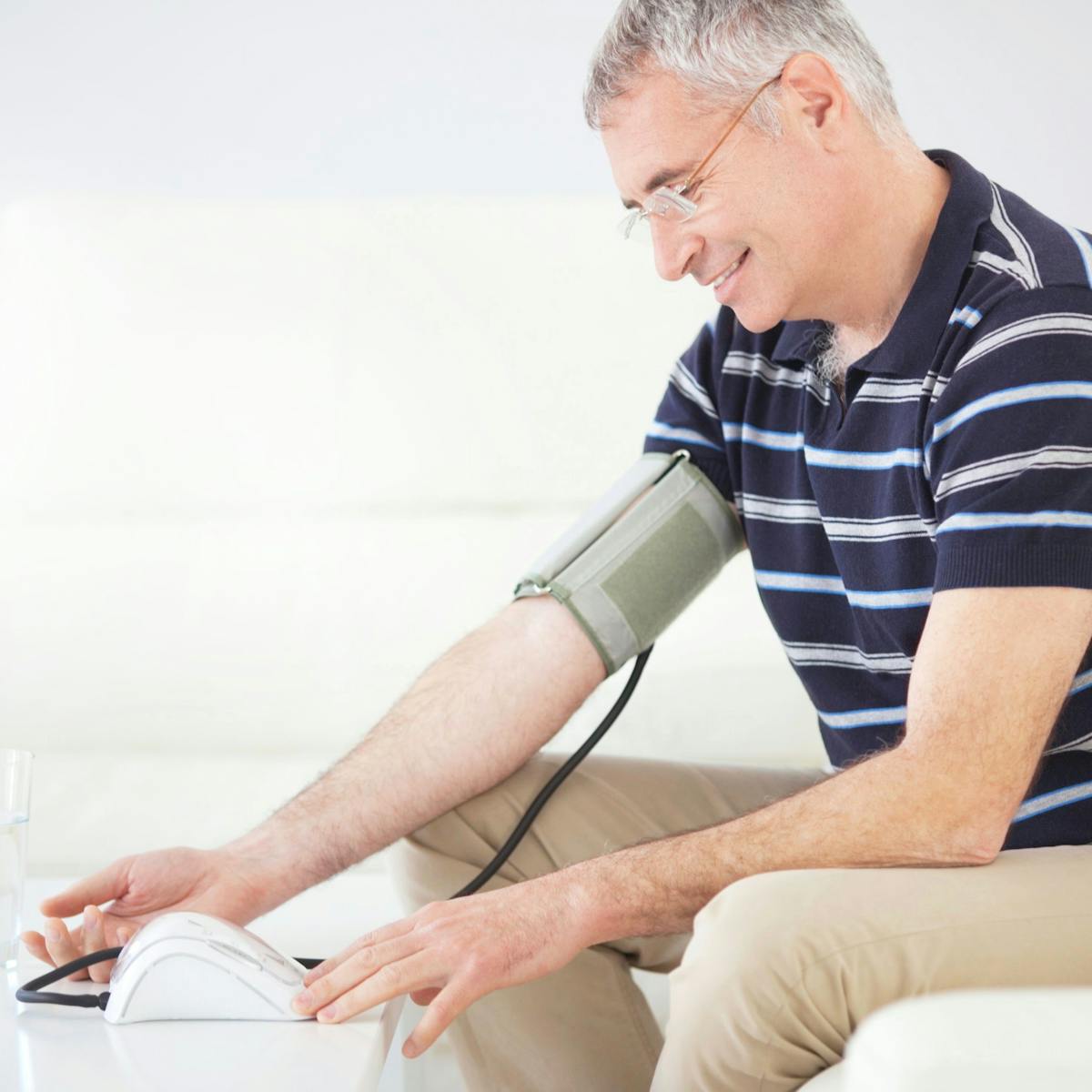

How to normalize your blood pressure
Guide Elevated blood pressure is a common health issue today, but you can improve your blood pressure using simple lifestyle changes.
Medications work, too
Sometimes lifestyle changes are not enough to bring your blood pressure back into healthy ranges. In that case, you may need to take blood pressure medication. Sometimes a single drug can do the trick, or it may take a combination of drugs.
Our in-depth guide to common high blood pressure medications goes through how blood pressure medications work and their risks and benefits. The guide also details what you need to know about working with your doctor to adjust blood pressure medications on a low-carb diet.
In short, while a high blood pressure diagnosis is a serious condition not to be taken lightly, you can take many actions today to improve your blood pressure readings right away and safeguard your health for the future.
Heart disease
What you need to know about high blood pressure - the evidence
This guide is written by Anne Mullens and was last updated on June 19, 2025. It was medically reviewed by Dr. Michael Tamber, MD on June 10, 2021.
The guide contains scientific references. You can find these in the notes throughout the text, and click the links to read the peer-reviewed scientific papers. When appropriate we include a grading of the strength of the evidence, with a link to our policy on this. Our evidence-based guides are updated at least once per year to reflect and reference the latest science on the topic.
All our evidence-based health guides are written or reviewed by medical doctors who are experts on the topic. To stay unbiased we show no ads, sell no physical products, and take no money from the industry. We're fully funded by the people, via an optional membership. Most information at Diet Doctor is free forever.
Read more about our policies and work with evidence-based guides, nutritional controversies, our editorial team, and our medical review board.
Should you find any inaccuracy in this guide, please email andreas@dietdoctor.com.
Journal of Hypertension 2019: The global burden of hypertension exceeds 1.4 billion people: should a systolic blood pressure target below 130 become the universal standard? [expert review, ungraded] ↩
European Heart Journal 2018: ESH/ESC guidelines for the management of arterial hypertension [expert review, ungraded] ↩
International Journal of General Medicine 2018: Understanding short-term blood-pressure-variability phenotypes: from concept to clinical practice [expert review, ungraded] ↩
Technically, 120/80 and below is normal, 120-129/80 is considered “elevated,” and 130/80 and above is “high.” Read more in the following section ↩
American College of Cardiology 2017: Guideline for high blood pressure in adults [guideline report, ungraded evidence] ↩
Frontiers in Cardiovascular Medicine 2017: Cardiovascular hypertensive crisis: Recent evidence and review of the literature [expert review, ungraded] ↩
PLoS One 2014: Hospital admissions for hypertensive crisis in the emergency departments: a large multicenter Italian study [observational study, weak evidence] ↩
PLoS One 2014: Hospital admissions for hypertensive crisis in the emergency departments: a large multicenter Italian study [observational study, weak evidence] ↩
Journal of Hypertension 2017: Hypertension in blacks: insights from Africa [expert review, ungraded] ↩
Public Health Review 2016: Improving the health of African Americans in the USA: an overdue opportunity for social justice [expert review, ungraded] ↩
Hypertension 2011: Why do black Americans have higher prevalence of hypertension? [expert review, ungraded] ↩
Journal of the American Heart Association 2018: Cumulative incidence of hypertension by 55 years of age in blacks and whites: The CARDIA study [observational study, weak evidence] ↩
American Journal of Medical Science 2015: Differences in hypertension: implications for high blood pressure management [expert review, ungraded] ↩
Journal of the American Society of Hypertension 2016: The two faces of hypertension: role of aortic stiffness [expert review, ungraded] ↩
Postgraduate Medicine 2018: Aggressive systolic blood pressure control in older subjects: benefits and risks [expert review, ungraded] ↩
Archives of Internal Medicine 2012: The risk of hip fracture after initiating antihypertensive drugs in the elderly [population-based case series, weak evidence] ↩
The New England Journal of Medicine 2015: A randomized trial of intensive versus standard blood-pressure control [randomized controlled trial; moderate evidence] ↩
International Journal of Environmental Research and Public Health 2019: Substantial and sustained improvements in blood pressure, weight and lipid profiles from a carbohydrate restricted diet: an observational study of insulin resistant patients in primary care [cohort study, weak evidence] ↩
American Family Physician 2017: Secondary hypertension: discovering the underlying cause [expert review, ungraded] ↩
Uptodate 2018: Effect of hormonal contraceptives and postmenopausal hormone therapy on blood pressure [review, ungraded] ↩
Archives of Internal Medicine 2005: Effect of oral pseudoephedrine on blood pressure and heart rate [meta-analysis of RCTs; strong evidence] ↩
Journal of Clinical Hypertension 2007: Drug interactions and drugs that affect blood pressure [review; ungraded] ↩
Expert Review of Neurotherapeutics 2016: Alternative pharmacological strategies for adult ADHD treatment: a systematic review [expert review; ungraded] ↩
Plastic Reconstructive Surgery 2013: Herbal products that may contribute to hypertension [review article; ungraded]
American Journal of Hypertension 2001: Herbs and supplements in the hypertension clinic [overview; ungraded] ↩
British Medical Journal Case Reports 2015: Hypertension induced by liquorice tea [case report and review of the literature; weak evidence] ↩
World Journal of Cardiology 2014: Alcohol-induced hypertension — mechanisms and prevention [overview; ungraded] ↩
Pharmacological Research 1999: Cocaine-induced hypertension [mechanistic study; ungraded]
Heart, Lung and Circulation 2016: The cardiac complications of methamphetamines [overview; ungraded] ↩
Southern Medical Journal 1995: Does smokeless tobacco cause hypertension? [overview; ungraded] ↩
High Blood Pressure and Cardiovascular Prevention 2016: Hypertension and stroke: epidemiological aspects and clinical evaluation [expert review; ungraded] ↩
Journal of Cardiovascular Medicine 2012: Hypertension and acute myocardial infarction: an overview [expert review; ungraded] ↩
Current Hypertension Reports 2014: Hypertension as a risk factor for heart failure [expert review; ungraded] ↩
Journal of Human Hypertension 2014: Hypertension and kidneys: unraveling complex molecular mechanisms underlying hypertensive renal damage ↩
Clinical & Experimental Ophthalmology 2017: Hypertensive eye disease: a review [expert review; ungraded] ↩
Advances in Experimental Medical Biology 2017: Treating hypertension to prevent cognitive decline and dementia: re-opening the debate [expert review; ungraded] ↩
The following systematic review shows that low-carb diets are more effective at lowering blood pressure than low-fat diets.
Obesity reviews 2009: Systematic review of randomized controlled trials of low-carbohydrate vs. low-fat/low-calorie diets in the management of obesity and its co-morbidities. [strong evidence] ↩
Open Heart 2014: The wrong white crystals: not salt but sugar as aetiological in hypertension and cardiometabolic disease [expert review; ungraded] ↩
Cardiovascular Diabetology 2018: Cardiovascular disease risk factor responses to a type 2 diabetes care model including nutritional ketosis induced by sustained carbohydrate restriction at 1 year: an open label, non-randomized, controlled study [weak evidence] ↩
BMJ 2020: Comparison of dietary macronutrient patterns of 14 popular named dietary programmes for weight and cardiovascular risk factor reduction in adults: systematic review and network meta-analysis of randomised trials [systematic review of randomized trials; strong evidence] ↩
This is based on clinical experience of low-carb practitioners and was unanimously agreed upon by our low-carb expert panel. You can learn more about our panel here [weak evidence]. ↩
International Journal of Environmental Research and Public Health 2019: Substantial and sustained improvements in blood pressure, weight and lipid profiles from a carbohydrate restricted diet: an observational study of insulin resistant patients in primary care [cohort study; weak evidence] ↩
